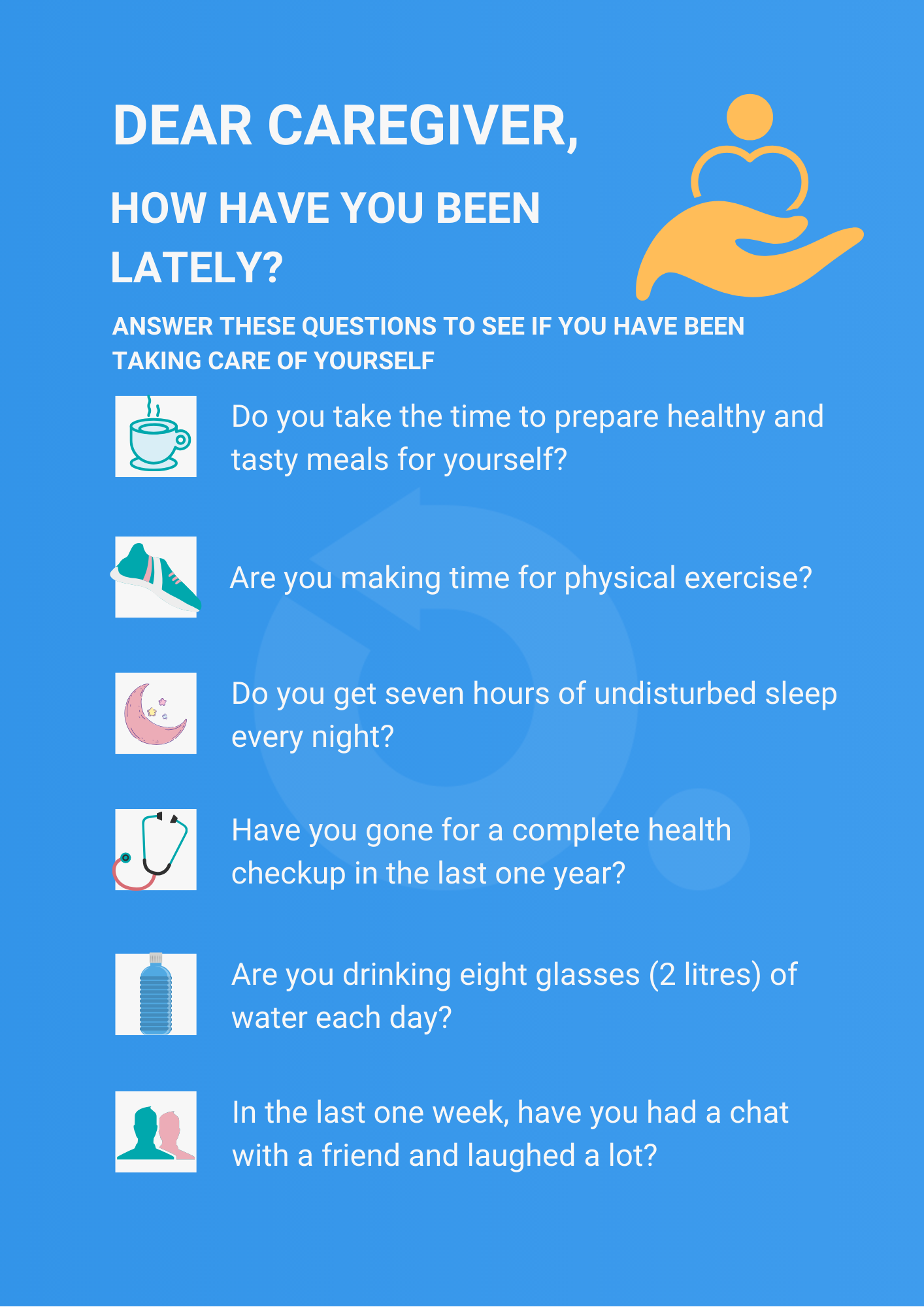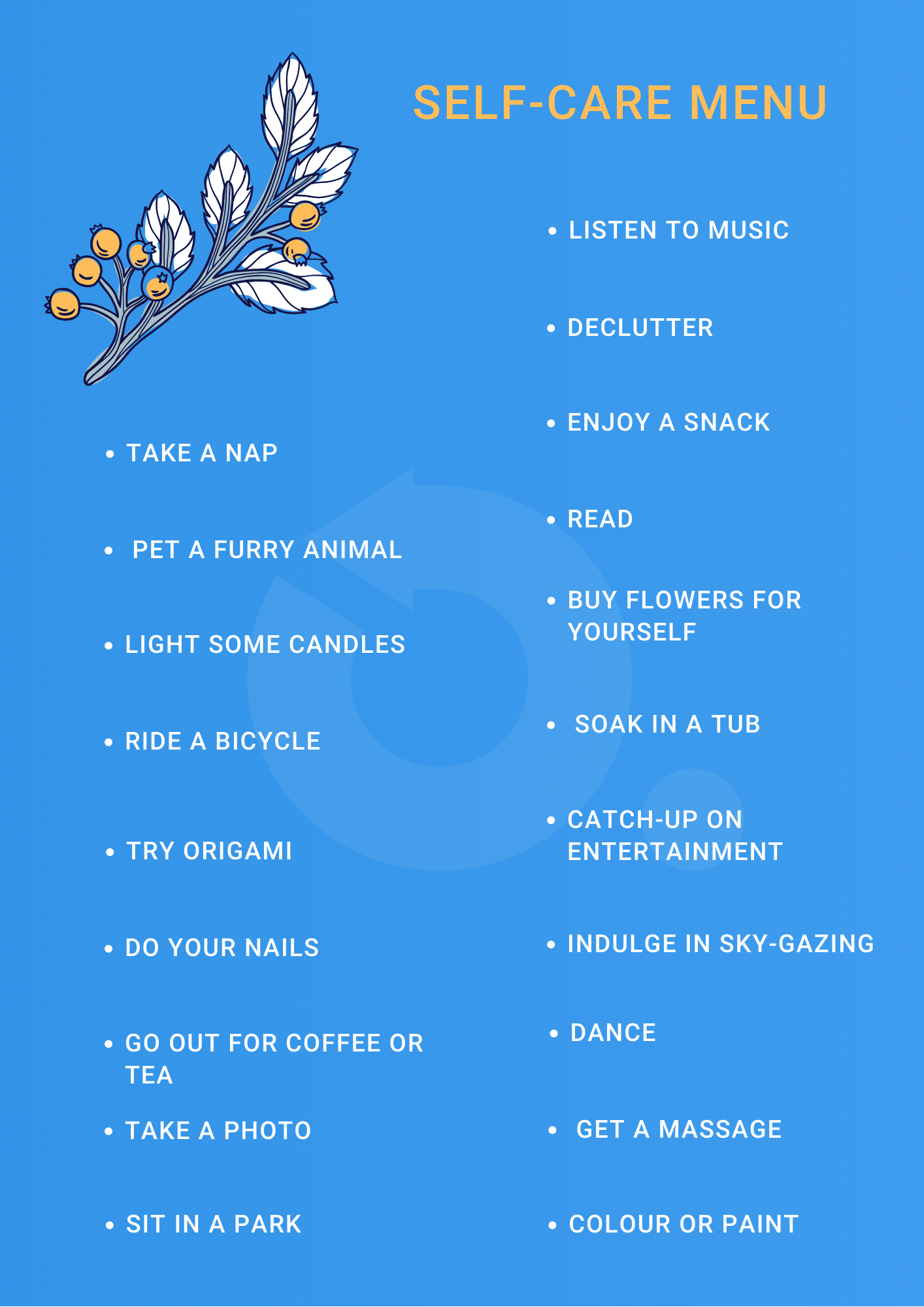Cancer takes a toll not just on the patient but the whole family and the one we care least about is the primary caregiver of the cancer patient. Today we write about the issues faced by caregivers and how they need to take good care of themselves while caring for their loved ones fighting cancer. Caregivers pass through multiple cycles of anxiety and emotional distress in addition to the physical stress of caring for the patient and they are not doing any good by neglecting their own health.
Studies show that caregivers are more prone to obesity and depression when compared to the general population. If you are a caregiver, you will know why.
After you’ve finished preparing meals for your loved ones, checked through the hospital bills, tidied up, topped up on the supply of groceries, and done the other dozen things on your to-do list for today, you will rarely have the energy or inclination to do anything for yourself.
Getting into a habit of putting yourself last can be unhealthy for your physical and mental wellbeing.
This vicious cycle of self-neglect and guilt needs to be broken, for yourself and for the sake of those you care for. Unless you are physically and mentally at your best, you will not be able to provide optimum support for those in your case. So, it’s time to take the time out for yourself.
Notice Yourself
The first step towards caring for yourself is to stop and pay attention to yourself. How have you been lately? Run through this checklist as an exercise to find out the real answer:

If you answer in the negative for three or more of the above, then you need to make some changes to your routine.
Exhale the Stress
Caregiving for cancer patients can be stressful and if this stress is not addressed, then it can lead to illnesses. Stress can also cause you to be irritable and snap at those that you are taking care of. It is, therefore, in the best interest of everyone involved that you take the time to relax and revive yourself, on a daily basis.
If you feel overwhelmed, do speak to a professional counselor or therapist who will be able to advise you on ways to reduce stress and anxiety in your daily routine. You can find some tips on dealing with anxiety here.
Also, you could join a local support group where others going through similar dilemmas gather to exchange their stories. We conduct one such regular series of support groups, called Talk Your Heart Out, where patients and caregivers get together to share their stories.
Set Goals
It is likely that you will read this article, nod in agreement and then go back to how things are, without making any changes. This is because you already have a lot on your plate and as much as you would like to do you may not have the time to do so. One way around this is to set goals for yourself and try and stick to them.
- Use your phone to set alarms to remind yourself when it is time to take a walk outside, or time to drink another glass of water.
- Keep a journal to note the improvements you have made, to motivate yourself to keep going.
- Leave sticky notes for yourself, to remind yourself to take five minutes to sit down and have a cup of tea in peace.
The 20-minute Menu
Here is a menu with items that you can do to calm yourselves, give yourself a break and bounce back refreshed and relaxed. It will take you only 20 minutes of your 24 hours in a day to destress and rejuvenate.

As the saying goes – charity begins at home, so does the importance of your own well-being before you can give the time, commitment and dedication caring for another person.
If you have suggestions to share ideas to de-stress and relax, please drop us a line at community@onco.com.

